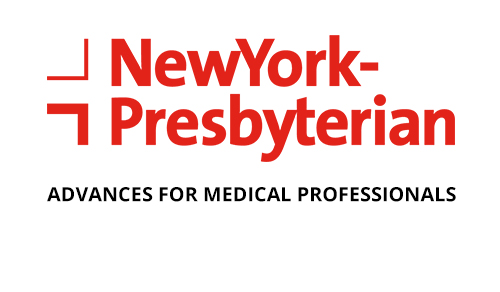Research Highlights Targeting Challenges in Cardiovascular Disease
Each and every day, NewYork-Presbyterian researchers and clinician-scientists are advancing knowledge in virtually every medical specialty. At Weill Cornell Medicine and Columbia University Vagelos College of Physicians and Surgeons, faculty are targeting some of today’s most formidable health challenges, pushing scientific discoveries forward and applying research breakthroughs to improving the lives of patients everywhere. In this issue of Advances, we share several recent investigations in cardiovascular care.
New Hope for Patients with Underdiagnosed Form of Heart Failure
Patients with transthyretin amyloid cardiomyopathy (ATTR-CM), a life-threatening and progressive form of heart failure, are finding treatment with the drug tafamidis. Researchers at Columbia University Vagelos College of Physicians and Surgeons conducted a Phase 3 clinical trial showing that tafamidis significantly reduces deaths and hospitalizations. Their findings were published in the September 2018 issue of The New England Journal of Medicine by the trial’s co-chair Mathew S. Maurer, MD, a cardiologist and heart failure specialist at NewYork-Presbyterian/
If tafamidis receives FDA approval for transthyretin amyloid cardiomyopathy, it would be the first medical therapy for this life-threatening disease, which may be more common than doctors realize. Compared to a placebo, the drug reduced deaths by 30 percent, reduced cardiovascular-related hospitalizations by 32 percent, and slowed the decline in quality of life among the 441 patients enrolled in the two-and-a-half-year study.
Once diagnosed, patients with ATTR-CM only live on average three to five more years. “ATTR-CM is considered to be a rare disease, but it is underdiagnosed,” says Dr. Maurer. “Until recently, cardiologists rarely tested for ATTR-CM, because diagnosis required a heart muscle biopsy and there has been no treatment for the disease. But now that we can detect the disease with noninvasive imaging, we’re finding more cases.”
ATTR-CM occurs when the protein transthyretin becomes unstable and clumps together forming sticky amyloid in heart muscle. The disease is most common in men over the age of 60 and is caused by heritable genetic mutations or age-related changes in the regulation of transthyretin.
“Until recently, cardiologists rarely tested for ATTR-CM because diagnosis required a heart muscle biopsy and there has been no treatment for the disease. But now that we can detect the disease with noninvasive imaging, we’re finding more cases.” — Dr. Mathew S. Maurer
Tafamidis acts by stabilizing transthyretin, preventing its dissociation and ability to form amyloid. “Based on this study, tafamidis may offer the first treatment for patients with this type of heart disease,” says Dr. Maurer. “Right now, the best we can do is manage the symptoms of ATTR-CM.” The study also found that tafamidis slowed decline in heart function and quality of life without causing more adverse effects.
The FDA will consider whether to approve tafamidis for the treatment of transthyretin amyloid cardiomyopathy. Patients can receive tafamidis at certain sites through an early access program established by Pfizer. NewYork-Presbyterian/
“Tafamidis prevents progression of the disease, and like other preventive drugs, it should be given as early as possible,” says Dr. Maurer. “We’ll need to diagnose people with ATTR-CM earlier in order for this drug to have the biggest benefit. Currently, patients are diagnosed with advanced disease, and we need to change that.”
Reference Article
Maurer MS, Schwartz JH, Gundapaneni B, Elliott PM, Merlini G, Waddington-Cruz M, Kristen AV, Grogan M, Witteles R, Damy T, Drachman BM, Shah SJ, Hanna M, Judge DP, Barsdorf AI, Huber P, Patterson TA, Riley S, Schumacher J, Stewart M, Sultan MB, Rapezzi C; ATTR-ACT Study Investigators. Tafamidis treatment for patients with transthyretin amyloid cardiomyopathy. The New England Journal of Medicine. 2018 Sep 13;379(11):1007-16.
Related Publications

Valve Replacement Volume Leads to Successful Outcomes

MitraClip Improves Outcomes for Mitral Regurgitation





